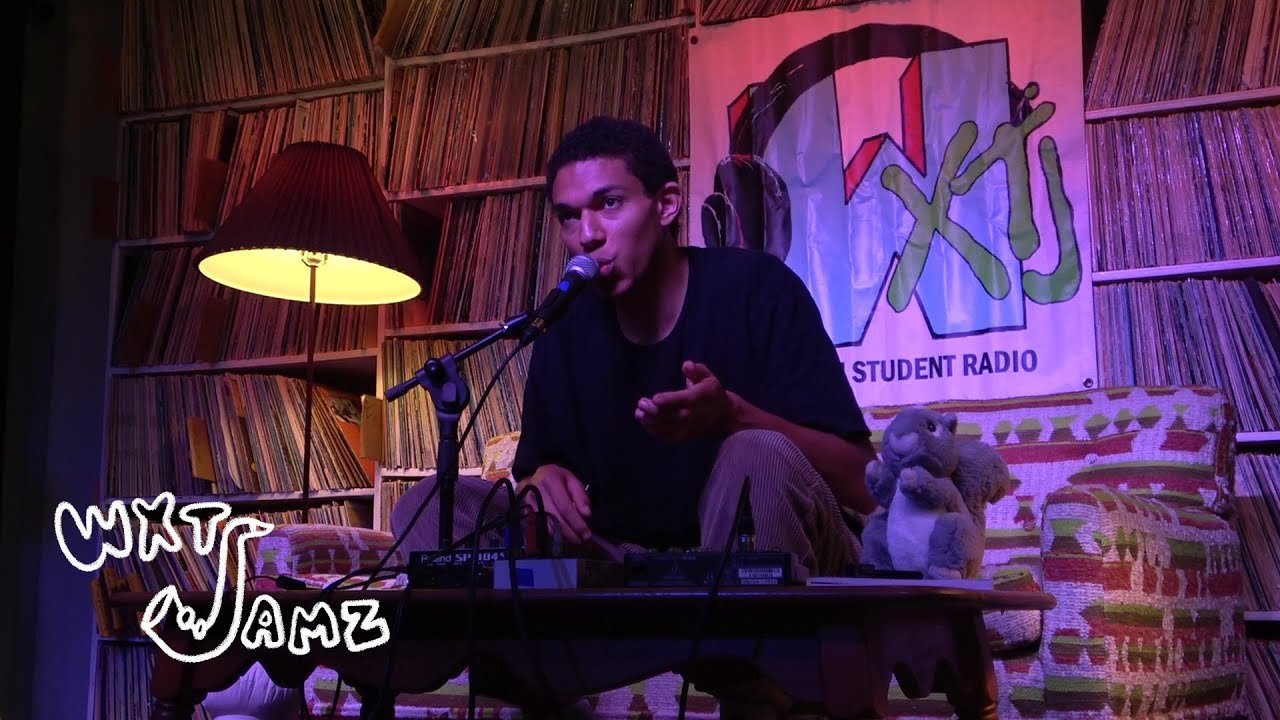
RESOURCES
Follow-ups from 2023 conference
Job Search Tips (fall 2023)
From Mary Garner McGehee, Managing Producer for WTJU’s podcast collective:
Places to look!
Starting out newsletter - It has links to jobs/internships/fellowships at the bottom of each edition! To join starting out newsletter go to this link and press subscribe in the top left corner!
CPB Job Line: pretty much every public media job in America
Virginia Association of Broadcasters Job Board: These are mostly jobs at commercial TV and radio stations.
Inside Higher Ed & The Chronicle of Higher Ed - Your college isn’t the only one with a radio station! Plus universities hire for a lot of other creative jobs!
Make a google alert for jobs with words like "assistant" "radio" "Podcast"
Companies/non-profits with a lot of media products: Vox, Slate, Spotify (Gimlet), PRX, American Public Media, here's an extremely comprehensive list: 2022 Podscape (12_22_2021).pdf
NPR headquarters internships - if you get one of these for a fall or spring semester (as opposed to summer) you're fairly likely to get hired on (as a temp - but you do get healthcare and a pretty good hourly wage) - these are currently cancelled for budget reasons BUT keep an eye out, I'm sure they will eventually bring them back
TV/Movies, etc: https://staffmeup.com/ -- these are mostly short-term gigs but they're pretty well-paid and there's a lot of cool stuff on here!!
AIR Media - more podcast and radio jobs! Plus a TON of resources for freelancers!
I hope this is validating and not discouraging - but it is a tough time to be looking for radio jobs, there have been layoffs at a lot of the big production houses. So here’s a couple tips for this particular job landscape:
It’s going to be a lot easier to get your foot in the door if you don’t limit yourself to big cities. Getting the first job is the hardest one and so you might consider investing a year or two in smaller market where you might get more responsibility.
When you’re looking at jobs to apply to, google or go on LinkedIn and see who has the job now or previously. This can be helpful because it’s often hard to tell how much experience the organization really wants. This is a good way to see if they previously hired someone who was starting out or someone who had 10 years of experience. Also, sometimes, those people will write or share on LinkedIn what their actual projects in that job were which can help you write a more compelling cover letter or give a more specific interview.
Full-time opportunities are especially competitive right now. BUT, based on what I’m seeing on listservs, I think a lot of big production houses are starting to lean more on freelancers and temps so keep an eye out for those to get your foot in the door and make connections with orgs.
Automation & DJ Live Assist Software
QUESTION: We're looking to replace our old automation system with one that is more intuitive and easier to use. Our station is on a tight budget, so cost is a concern, but we don't want to end up with software that is unreliable or lacks support. What do you suggest?
ANSWERS:
RadioDJ. Used at least two Virginia college stations. For the low, low price of "free," you get what you pay for. One station likes it fine, one is not a fan.
Rivendell is free and open source, and there's a large community of developers supporting it. It's popular amongst community radio stations and it has a lot in its favor. Bit of a learning curve to get it set up and running, though tech support contractors are available.
Radiojar. Complete online radio management and streaming package -- cloud-based automation & playout, show & host management, integrated music scheduler. Used by one station who's happy with it. Cost: $20-100/month, depending on features needed.
Station Playlist. One station manager has experience with it, and says it's worth looking into. Price: $299-799 one-time, with modestly priced annual support packages avaialble.
PlayoutOne Pro. One Virginia college station is very happy with it. Features include: simple to use on-air screen, multi-station capable, voice tracking, auto importer, remote broadcast web interface, ability to mix down hours, backend recording for station airchecks, works with many music schedulers and traffic systems. Cost: $130/month, which includes the MusicOne music scheduler
Wide Orbit is used by some of Vifginia's college stations. There are some cumbersome steps in the beginning, but it is solid. Useful if training students for broadcast careers is a key goal, as commercial stations often using the same software. Cost is high.
ALSO: Last summer, the National Federation of Community Broadcasters did a virtual panel with two really solid tech guys: youtube.com/watch?v=8AaLIc_Xd_I
Recent audience research reports
Audio Megatrends (Nov 2023). Edison Research has been conducting audio research studies for more than 30 years. This PDF is from their presentation at the Resonate podccast festival in November 2023.
Admin relations & organizational development
Tips for Ensuring College Radio’s Survival. The blog Radio Survivor has been around for a long time, and it’s still relatively active and adding posts related to college radio. Back in 2010-11, a number of colleges & universities around the country were selling their FM stations. Two of the Radio Survivor writers shared essays about how ensure college radio’s survival. Even if your station is not protecting an FM signal, there is some good advice in here.
Power Mapping and Analysis. Each of our stations needs something… Funding, more space, new studio equipment, support with regulatory forms, and so on. At our colleges, there are decision-makers who can make those things happen for us. But it’s not always clear who that is or how to influence them. The “Power Mapping” tool was made for social movements and acvist campaigns, but it can be adapted for our radio stations. Once you have defined a clear goal of what you want / need, give this tool a try.
Fundraising & finance
From Nathan Moore, WTJU General Manager:
Hardly anyone gets into college radio because they love asking for money. But here’s the thing: your station has an awesome mission. You likely have big ambitions for it. And that requires funding. Perhaps more than your college is willing to pony up.
Doing some of your own fundraising will give you more resources to make your station thrive. Plus, in this day and age, administrators tend to look kindly on organizations that can raise some of their own funds.
Radio stations can raise money through all sorts of means: pledge drives, direct mail, crowd funding, business sponsorships, grants, events, and more. Each of these has pros and cons, and the whole thing can get overwhelming pretty quickly.
Before I launch into fundraising strategies, I want to share this set of truisms:
More than anything, fundraising is about relationships.
People are most likely to donate when we offer them a meaningful personal relationship combined with meaningful content.
If you don’t ask, you won’t receive many donations.
So where do you start?
One of the best potential sources of near-term support is your station alumni. At most of our stations, hundreds, if not thousands of DJs have passed through our studios. FOr many, it was the best part of their college years. You may not know them yet, but they already have a caring relationship with your station.
Here is what a step-by-step alumni giving campaign could look like:
Set up a system for your station to receive donations. Both one-time gifts and recurring monthly donations. Your college’s Development / Advancement office should be able to help with this or point you in the right direction. Just make sure the funds raised go to the station’s account rather than a general fund.
Figure out who your alums are. Some colleges maintain lists of almuni with affinity tags. If possible, get your Alumni Association’s list of graduates who were involved at your station. Lacking that, ask around to all the alums you know of. Have them think of classmates and older alums. Gather all the contact info you can and get each new alum to give you more names.
Connect with your alums. Use email to reach out to them. Ask them to follow you on whatever social media you’re good at, and engage with them there.
Plan a fundraiser campaign. Set a fundraising goal that feels reasonable and that reflects what your station needs. Then plan these several components of a fundraising campaign:
Leading up to On-Air. Two or three weeks before the on-air component, reach out to all of your alums and any other listeners you have contact info for. Definitely use email blasts and social media. Also send a postcard or letter if you have the budget. Tell them about your upcoming on-air fundraiser, why donating matters, and how to give early.
On-Air. Perhaps 36 hours for your first rodeo — 8am on Day 1 to 8pm on Day 2. Schedule your best hosts for these days. Bring in well-known guests and plan special programming. Train your hosts to ask for donations efficiently and frequently (5-6x per hour). You can also offer some thank-you gift to show appreciation for donations above a certain amount.
After On-Air. Once your on-air drive ends, share whether you made your fundraising goal. Tell people its not too late to give and add to the total. Send an email receipt to each donor right away and explain how they can pick up their thank-you gift, if any. (Donation receipts may be / should be automatically generated by your giving platform.)
Steward your donors and cultivate the next gift. Within 30 days of a person donating, send them a note of thanks. Tell them why their gift matters and invite them to stay in touch. Add their email address to a regular email newsletter that you write and send to listeners and donors on a regular basis.
In recent years, I have given some presentations on how to develop individual donor programs at radio stations. Here’s a PDF of my presentation, which covers the above items and more.
There is a LOT to consider for each of these steps. Feel free to reach out at nathan.moore@virginia.edu if you’d like to talk through how to kick off your fundraising program.
Station Moves
From Nathan Moore, WTJU General Manager
In 2019, WTJU & WXTJ moved into new studios at 2244 Ivy Road in Charlottesville. It was a half-year of intense work, but ultimately a rewarding experience for the stations.
I put together a presentation for other stations considering or just beginning a move. This provides a top-level overview of pre-move considerations, design, builder, tech, logistics, fundraising, and promotions.
Here is a PDF of my presentation.
